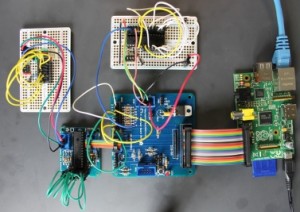Quick2Wire status update - a new lease of life?
 |
| Quick2Wire Logo |
Some of you won't have heard of Quick2Wire. It was a start-up that designed, manufactured and sold add-on boards for the Raspberry Pi.
I founded it in 2012, along with a group of other designers and developers, and it did reasonably well for a while.
What went wrong?
Most team members had full time jobs, so they could only work on the project in their spare time. I ended up doing all the marketing, kitting, packing, posting and accounts.
One consequence was that I didn't do enough marketing after we launched, and things became worse when our PCB designer became seriously ill.
We needed office space for the stock and kitting area, and when sales fell off we could no longer cover our costs.
Quick2Wire stopped trading in the summer of 2013, and was finally dissolved in March 2014.
Sukkin Pang of S.K.Pang Limited kindly agreed to purchase the company's remaining stock when we stopped trading, and he took over the Quick2Wire website.
The team of developers who created the software for our boards moved on to other projects, and the software has remained frozen in time.
Frozen software
Meanwhile the Pi has moved on.
The introduction of new Python access to GPIO and I2C, and other changes, meant that most of our software was unnecessary or unusable.
The fundamental concept is still valid, though, and I have been looking at ways of breathing new life into the platform.
What happens next?
I'm currently considering four ideas:
- An update to the documentation showing how currently available software can be used to drive the boards.
- A new and much simpler open source interface board that people could order from OSHPark or Ragworm supporting the 40-pin GPIO header.
- Extra connectors on the new board to make it easy to use the Grove add-ons as well as the Quick2Wire boards.
- An open source interface board that would allow the BBC micro:bit to access the Quick2Wire hardware and Grove add-ons, with MicroPython libraries to support them.




Comments
Post a Comment